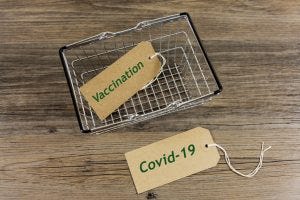
There are 94 COVID-19 vaccines in development but almost no capacity to produce them at meaningful scale says Sanofi, which is aiming to go from 100 million doses of a recombinant protein candidate to a billion in 12 months.
Industry’s response to coronavirus (SARS-CoV-2) has been, to use the word of the moment, unprecedented. Scores of COVID-19 vaccines are in various stages of development.
Sanofi is involved in two vaccine programs, representing a “huge opportunity for our organization,” CEO Paul Hudson said during Sanofi’s Q1 2020 financial call.

Image: iStock/eag1e
“Now, there is a lot of activity in the vaccine sector and I think the WHO last count was 76 active COVID-19 vaccine projects. Let’s be really honest, very few of the sponsors of those 76 programs have the expertise or the capacity to produce a vaccine at required scale.”
According to Pharma Intelligence’s coronavirus hub, there are actually 94 vaccines in development. Of these, 88 are in preclinical, two are in Phase I and four are in Phase II.
One of Sanofi’s programs is a recombinant protein vaccine based on the firm’s baculovirus expression platform, the same technology used to make its influenza product, Flublok. Sanofi inked a partnership with fellow Big Pharma firm GlaxoSmithKline (GSK) in what Hudson described as an “unprecedented alliance of two vaccine giants,” with GSK providing large-scale AS03 adjuvant to the candidate.
With GSK on board, he argued Sanofi is probably the only company that can scale-up production significantly when needed – though J&J, which has invested heavily to support its own vaccine programs, and Pfizer and BioNTech may both argue differently – and without cannibalizing its Flublok franchise.
David Leow, EVP of Sanofi Pasteur, added more color: “We have large additional capacity that we can upscale in a very short amount of time and we’re already looking at doing that together with our partners,” he said.
“So our ambition is to go from the current 100 million to 600 million [doses] that we have announced based on US territory to go beyond the one billion in 12 months, including also the capacity we have with Unigen in Japan.” (Protein Sciences, the developer of Flublok that Sanofi acquired in 2017, had inked a deal with Unigen in 2016 for the Japanese firm to make the flu vaccine using two 21,000 L bioreactors.)
mRNA vaccine
The second program Sanofi is invested in is a messenger RNA (mRNA) vaccine in development with Translate Bio.
“Translate Bio has been working since quite some time on up scaling the production process because their first candidate is from cystic fibrosis, which is inhaled and you need larger amounts of messenger RNA on the cystic fibrosis candidate,” said Leow.
Vaccine candidates are already being producing at hundred-gram batches using third-party manufacturer Albany Molecular Research, Inc. (AMRI) and now they are moving to 250-gram batches, he continued, with the hope to move to kilogram-batches by the end of the year. “That would allow us to significantly upscale to hundreds of millions of doses.”
He added that the firms are confident they will be able to deliver on large scale, though noted Sanofi is looking to add sealing and packaging capacity in its internal network, while also investigating possibilities with third-party manufacturers.
About the Author
You May Also Like

schedl_b_and_w.jpg?width=100&auto=webp&quality=80&disable=upscale)
schedl_b_and_w.jpg?width=400&auto=webp&quality=80&disable=upscale)



